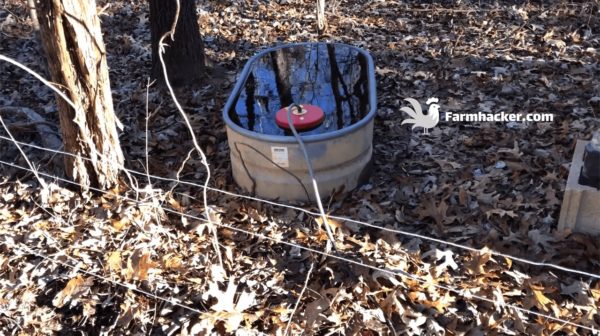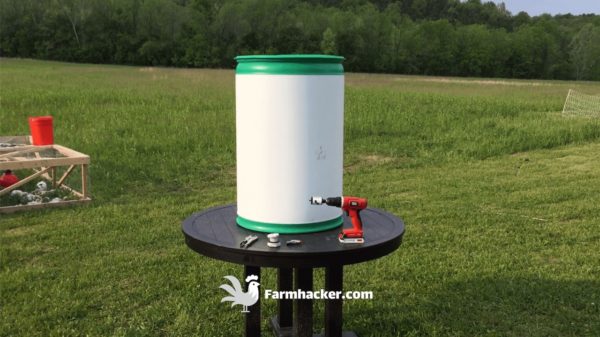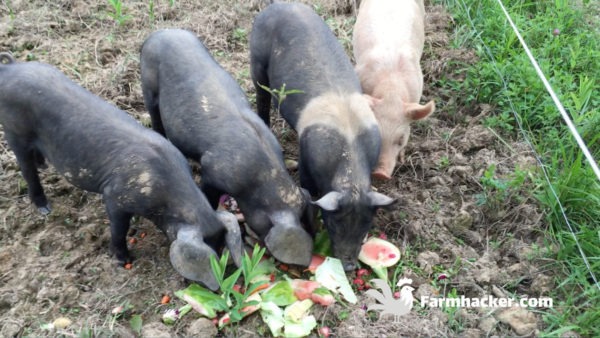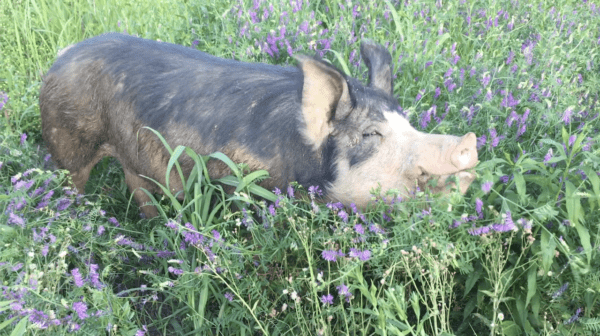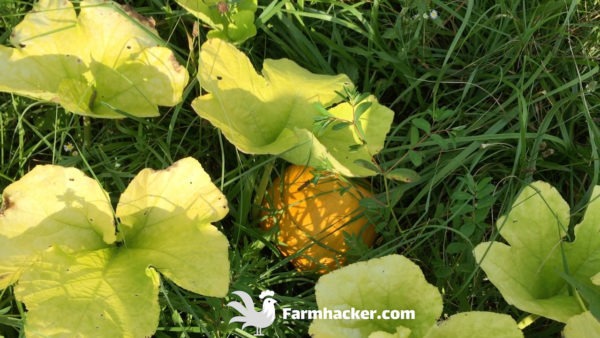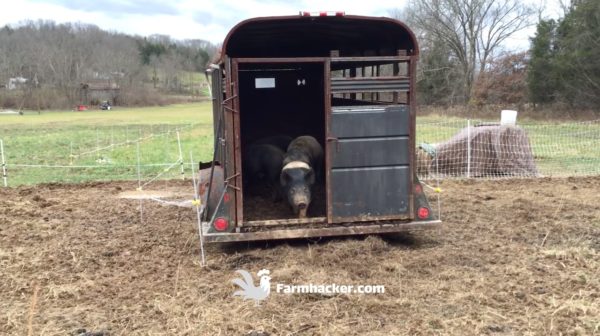Last Updated on July 16, 2023
As a small-scale pig farmer that raises pigs, I have first-hand experience not only with feeding pigs but also with observing what they eat in their natural habitat. Let’s dive in.
What Is the Main Thing Pigs Eat?
The food pigs eat can greatly vary based on their habitat. In their natural habitat, pigs are omnivores, which means they can eat both plants and animals.
They eat a wide variety of food, often depending on what they can find. Pigs eat roots, seeds, fruits, grass, and fungi for the most part.
When it comes to animal-based food, they usually eat small creatures like insects, worms, and sometimes small mammals, birds, and their eggs. During times when food is hard to find, they may even eat dead animals or resort to cannibalism.
Pigs are known to eat crops like corn, wheat, and other grains if they come across farmland, which often leads to conflict with farmers.
What Do Small Farm Pigs Eat?
The diets of pigs living on small farms are more controlled than those of wild pigs. Farmers usually feed them feed called ‘Pig Grower’.
This type of feed can be made up of grains like corn, barley, soybeans, and vitamins which are rich in energy and protein. This helps the pigs grow and stay healthy.
On small farms, pigs also have the opportunity to enjoy a more varied diet. They can be given fruits and vegetables, kitchen scraps, and dairy products along with their regular feed.
However, it’s crucial to ensure these additions are safe for pig consumption. Certain food items, like raw potatoes and some meat scraps, can be harmful to pigs.
What Do Pasture-raised Pigs Eat?
When it comes to diet variety, pasture-raised pigs top the list. While they are also fed grains, a significant portion of their diet can come directly from the pasture.
Grass, clover, alfalfa, and other leafy plants are common in their diet. Pigs are also known to forage for roots and tubers.
Pigs raised in wooded pastures, or silvopasture systems, may supplement their diets with acorns, hickory nuts, and other mast.
If you need help designing a paddock system for optimal nutrition, I wrote this article on Pasture Pigs Rotational Grazing Paddock Design & Layout.
If you’re raising pigs on pastures, you may need to supplement their diet with balanced pig feed. This ensures they’re getting enough protein and other essential nutrients.
Some farmers also provide additional minerals to ensure pigs have a balanced diet.
And if you want to create an organic supplemental feed system on your farm, Check out this article I wrote on How to Set Up an Organic Pig Feed System Using Vegetables.
What Do Pigs Eat the Most?
The most common food pigs eat is grains. Corn is a prevalent grain in pig feed as it provides the pigs with the energy they need. Soybeans are also commonly fed to pigs because they are high in protein.
The combination of these grains and additional nutrients make up the majority of a pig’s diet, aiming to keep the pig healthy and growing.
Do Pigs Naturally Eat Meat?
Pigs are naturally omnivores, meaning they can eat both plants and animals. If pigs in the wild come across meat, they won’t shy away from consuming it.
However, the amount of meat in their diet typically isn’t high, especially for pigs on farms. This is due to their diets being mostly controlled and focused on grains and plant-based foods.
What Do Baby Pigs (Piglets) Eat?
The first food piglets consume is their mother’s milk. Colostrum, the initial milk produced by the mother pig, is extremely important for piglets.
This first milk is rich in nutrients and antibodies that help keep the piglets healthy and protect them from illness.
Once piglets are weaned off their mother’s milk, they transition to a diet of “starter feed.” This feed is specially formulated to be easily digestible and packed with nutrients necessary for their growth.
As the piglets continue to grow, the composition of their feed changes to meet their evolving nutritional needs.
How Do Pigs Find and Consume Food?
Pigs are natural foragers. Using their snouts, they root around in the soil in search of food. This can include roots, tubers, insects, and worms.
Besides providing a source of food, this foraging behavior also helps in naturally tilling and aerating the soil.
On a farm, pigs are typically fed using a feeder. Check out my article about The Best Pig Feeders to see what I recommend.
Grower Feed and Commercial Feed
On larger commercial farms, pigs are often fed specialized diets known as ‘grower feed’ and ‘finisher feed.’ These feeds are designed to help pigs grow rapidly and gain muscle, resulting in more meat.
The balance of nutrients in these feeds is calculated to promote maximum growth and a desirable fat-to-muscle ratio for market.
What Do Pigs Eat Outside of Grower or Commercial Feed
Pigs on smaller farms or those with access to pastures and woodlands often have more diverse diets. They enjoy foraging for roots, tubers, and insects.
These pigs are also typically given a balanced commercial feed to ensure they receive all necessary nutrients for healthy growth.
Swine Feed Is Carefully Formulated to Meet Pigs’ Nutritional Needs
For a pig to grow properly and stay healthy, it requires a balanced diet. It’s essential for their diet to be rich in protein, including a specific type called lysine.
A lack of adequate protein and lysine can lead to stunted growth and even sickness in pigs. As a result, many farmers supplement their pigs’ diets with additional feed, especially in the case of larger pig breeds.
Check out my article about The Best Pig Feed to see what I recommend.
How Much Water Does a Pig Need Each Day?
Apart from food, water is another crucial requirement for pigs. An adult pig can consume between 5 to 10 gallons of water each day, depending on their size, the feed they consume, and the environmental conditions.
Water is vital for digestion, maintaining body temperature, and overall hydration.
If you need help setting up a pig waterer, check out my article about The Best Pig Waterers.
Factory Farms Force Pigs to Be “Muscle-Producing Machines”
Lastly, it is essential to note the unfortunate reality of factory farms. In such settings, pigs are often seen as mere “muscle-producing machines”.
These farms feed the pigs high-protein diets to maximize growth, often compromising the animals’ quality of life. The situation is starkly different for pasture-raised or free-range pigs, where pigs have access to outdoor spaces, can exhibit their natural behaviors like foraging, and lead a life closer to what nature intended.
Summary
In summary, understanding a pig’s diet is a fascinating journey that goes beyond just answering the question of what pigs eat. Their dietary needs are complex and change with their growth stages.
An optimal diet, combined with ethical farming practices, can not only promote the pigs’ health and wellbeing but also contribute positively to the quality of the products derived from them.

